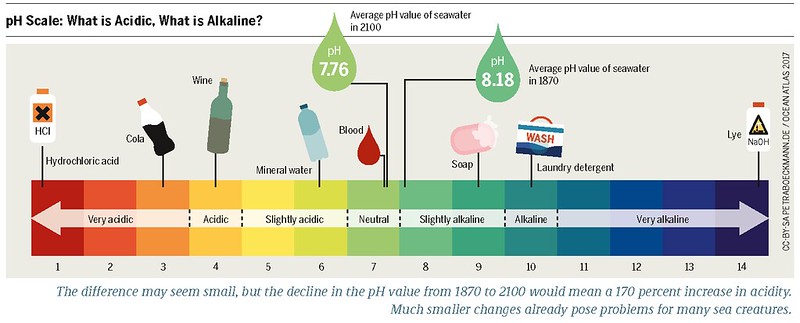The pH value of a solution of ethanol in water is nearly 7.00, indicating that it is almost neutral. However, the pH of ethanol itself is not applicable as it does not have a pH in its pure form, as pH is a measure of the hydrogen ion concentration in an aqueous solution. The pH of ethanol-water mixtures is affected by the concentration of ethanol, with anhydrous and hydrous bioethanol fuel required to have a solvent-specific pH (pHe) between 6.5 and 9.5 at 25.0 °C.
Understanding the pH of Ethanol-Water Mixtures
When ethanol is dissolved in water, it can be quantitatively converted to its conjugate base, the ethoxide ion (CH3CH2O−), by reaction with an alkali metal such as sodium. This reaction is not possible in an aqueous solution, as water is more acidic, so that hydroxide is preferred over ethoxide formation.
The pH of ethanol-water mixtures is affected by the concentration of ethanol. As the concentration of ethanol increases, the pH of the solution can shift towards a more neutral or slightly basic range. This is because the addition of ethanol to water can reduce the overall hydrogen ion concentration, leading to a higher pH.
To maintain the desired pH range for anhydrous and hydrous bioethanol fuel, it is important to carefully control the ethanol-water ratio and, if necessary, adjust the pH by adding a small amount of an acid or a base to the solution.
Factors Affecting the pH of Ethanol-Water Mixtures
-
Ethanol Concentration: The pH of ethanol-water mixtures is highly dependent on the concentration of ethanol. As the ethanol concentration increases, the pH can shift towards a more neutral or slightly basic range.
-
Reactions with Hydrogen Halides: Ethanol can react with hydrogen halides (such as hydrogen chloride or hydrogen bromide) to produce ethyl halides, which can be used for halogenation reactions. These reactions can affect the pH of the solution.
-
Haloform Reaction: The haloform reaction is a chemical reaction where a haloform (CHX3, where X is a halogen) is produced by the exhaustive halogenation of a methyl ketone (a molecule containing the R-CO-CH3 group) in the presence of a base. This reaction can also impact the pH of the ethanol-water mixture.
-
Surface Tension Reduction: The addition of even a small percentage of ethanol to water can significantly reduce the surface tension of water, which partially explains the “tears of wine” phenomenon. This change in surface tension can affect the pH of the solution.
-
Preservation of Natural History Collections: In alcohol-preserved natural history collections, the measurement of pH is fraught with considerable theoretical and methodological difficulties, particularly due to the concentration-dependent effect of ethanol.
Balancing the pH of Ethanol-Water Mixtures
To balance the pH of ethanol-water mixtures, one can add a small amount of an acid or a base to the solution. For example, adding a few drops of acetic acid (CH3COOH) or a strong base like potassium hydroxide (KOH) can help adjust the pH to the desired range of 6.5 to 9.5 for anhydrous and hydrous bioethanol fuel.
It is important to carefully monitor the pH of ethanol-water mixtures, as the pH can have significant implications in various applications, such as fuel quality, chemical reactions, and the preservation of natural history specimens.
Conclusion
In summary, the pH of ethanol in water is nearly 7.00, indicating that it is almost neutral. However, the pH of ethanol itself is not applicable, as it does not have a pH in its pure form. The pH of ethanol-water mixtures is affected by the concentration of ethanol, and it can be balanced by adding a small amount of an acid or a base to the solution. Understanding the factors that influence the pH of ethanol-water mixtures is crucial for various applications, from fuel quality to the preservation of natural history collections.
References:
– Unified pH Measurements of Ethanol, Methanol, and Acetonitrile: A Review – NCBI
– pH of Ethanol – Chemical Forums
– Ethanol (C2H5OH) – JJS Technical Services
– MEASUREMENT OF pH IN ETHANOL, DISTILLED WATER – Allen Press
– pH abs measurements of buffered 50-50 wt% water-ethanol mixtures – ScienceDirect
– Ethanol – Wikipedia

